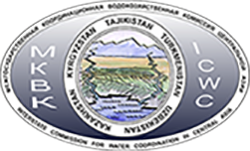Coordination Metrological Center ICWC
Coordination Metrological Center ICWC (CMC ICWC) was establish on base of Design and Technological Institute “Vodavtomatika i Metrologiya” (DTI “Vodavtomatika i Metrologiya”)
The structure of the institute:
• Water Objects Automation Technology and Reconstruction Division;
• Automatics, Telemechanics and Communications Division;
• Instrumentation and Management Systems Development Division;
• Model and Working Instrumentation Division;
• Metrological Service Division;
• Technological Instrumentation Division;
• Scientific and Technical Information Division and other additional services.
Total number of staff is 57, including engineering workers amounting to 36 persons. Four of them are Ph. D. in technical sciences.
Field of activity:
• Development of automated control systems (ACS, TPACS, EACS, etc.);
• Development of telecommunications systems;
• Development of projects, methods, instrumentation and systems of measurement;
• Metrological provision;
• Development of normative-technical documents.
The main functions:
• Inter-sectoral metrological service of the Kyrgyz Republic on fluid, gas and heat quantity measurement methods and instrumentation;
• Coordination Metrological Center of Interstate Coordination Water Commission on the Aral Sea basin problems;
• Research and development works in the field of creating automated control systems (industry, agriculture, water economy, ecology), working out and improving fluid, gas and heat quantity measurement methods and instrumentation, and also developing normative-technical, methodical, legal documents on automation and metrology.
The main tasks:
• Organizing water, energy and other resources accounting, including development and certification of measurement and automation facilities to perform commercial payment operations.
• Designing communication and data transfer networks.
• Creating automated working places of managerial and engineering personnel.
• Ensuring centralized control and management of technological equipment operation.
• Data collection and processing automation and technological processes optimization on the basis of mathematical models.
• Creating technological processes automated control systems (TPACS), enterprises automated control systems (EАCS), territorial and production associations automated control systems (TPAACS), their technical, software, information and organizational provision.

